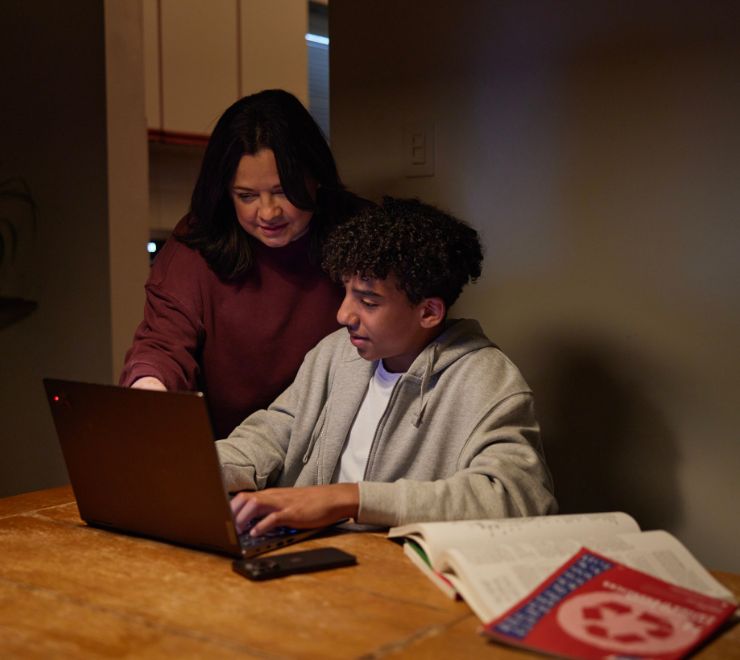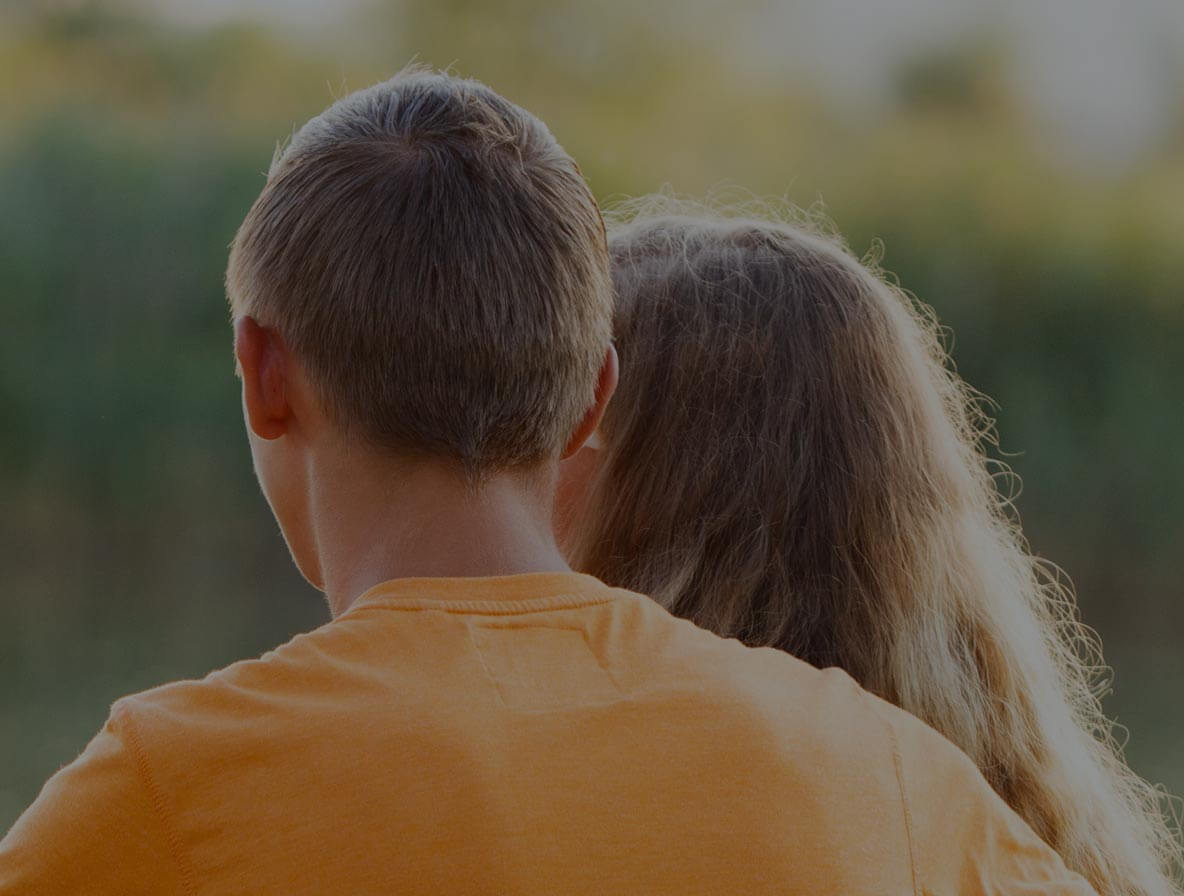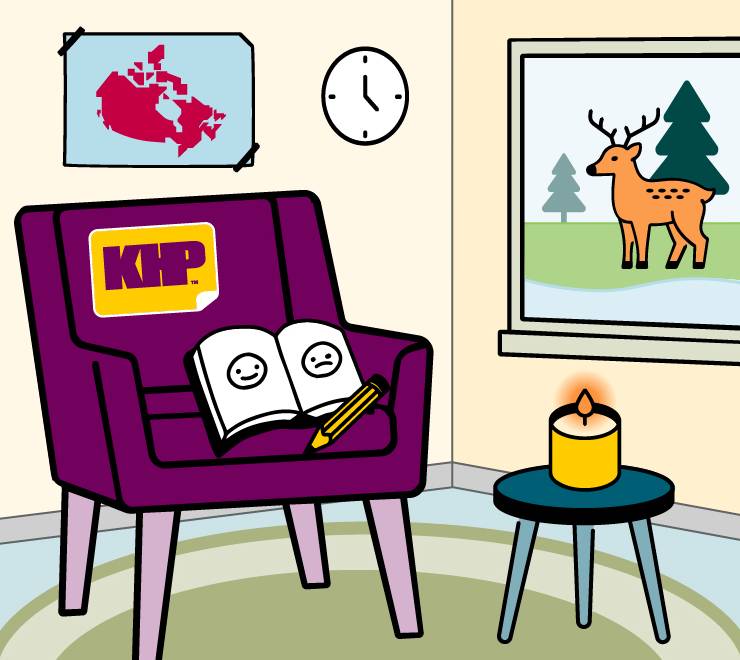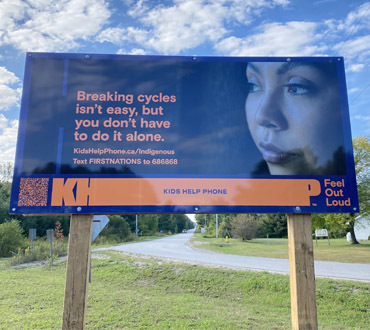Photography credit: Cesar Ghisilieri
All types of online sexual exploitation and abuse are illegal. If you think you may be experiencing it, it’s important to involve a safe adult.
Online sexual exploitation and abuse is when one person manipulates another person to get them to do something sexual — it’s an ongoing cycle of emotional and psychological abuse. This can include things such as forcing or blackmailing someone into to sending sexual photos/videos of themselves online or to perform sexual acts over webcam.
Online sexual exploitation and abuse is illegal whether you’re communicating with someone older than you or someone your own age.
How do I know if I’m being sexually exploited and abused online?
It’s never OK for someone to make you uncomfortable. If someone is doing things that make you feel uncomfortable, scare you or if someone tries to force you to do something, you could be experiencing sexual exploitation and abuse.
It’s sexual exploitation and abuse if the person you’re communicating with:
- encourages you to do sexual things that make you uncomfortable
- sends you unwanted nude photos or flashes you on webcam
- asks sexual questions about you or makes inappropriate sexual comments
- exposes you to pornography without your consent
- encourages you to watch them do sexual things without your consent
If any of these things has happened to you in the past, or is happening to you now, it’s important to listen to your instincts. Even if you feel like you’re in a real relationship with the person who’s making you feel this way, it’s important to tell a safe adult such as a teacher, counsellor or parent/caregiver. You can always call Kids Help Phone at 1-800-668-6868 if you need to talk.
Types of online sexual exploitation and abuse
Knowing the common terms and tactics exploiters use to manipulate people will help you recognize online sexual exploitation and abuse:
- Grooming
Grooming is the name given to tactics used by exploiters to gain your trust. They develop a relationship with you, often using specific strategies like:
- complimenting you over and over (e.g. “I’ve never met anyone as beautiful as you,” or “I’ve never loved anyone as much as I love you.”)
- lots of attention and affection
- lots of kindness
- gifts
- money
While some of these may be a part of a healthy relationship, it’s not healthy to be asked to hide or lie about them to others. If you feel uncomfortable or unsure about the person’s behaviour, it’s important to tell a safe adult such as a teacher, counsellor or parent/caregiver. You can always call Kids Help Phone at 1-800-668-6868 if you need to talk.
- Blackmail
Blackmail is when someone tries to get you to do something for them that you don’t want to do by threatening to hurt you. This includes saying they’ll release sexual photos/videos of you unless you do what they want.
- Boyfriending/Girlfriending
Boyfriending/girlfriending is when an exploiter manipulates you into thinking you’re in a relationship with them in order to win your trust. If you’re not sure if the relationship you’re in is genuine, look for other signs of exploitation and abuse or an unhealthy relationship.
- Love bombing
Love bombing is when an exploiter gives you an abundance of compliments and affection to gain your love and trust.
- Luring
Luring is when a person uses online communication to contact someone they think is under 18, in order to make it easier for them to commit a sexual offence against that person. It’s important to tell a safe adult (parent/caregiver, teacher, counsellor, etc.) if someone is trying to lure you online.
- Persistence
Persistence is when someone keeps asking you for something, even when you repeatedly say “no.” It’s important to not give in and to try blocking them online if they aren’t listening to you. If you agree to send sexual images, they may be used to blackmail you in the future.
- Using pity/guilt
An exploiter may try to make you feel sorry for them, or guilty about something, in order to make it more likely you’ll do what they want.
- Sending sexually explicit material
An exploiter may send you unwanted sexually explicit material (pornography, nude photos of themselves, etc.) and try to convince you this type of unsolicited sexual behaviour is acceptable.
• Sextortion
Sextortion is when someone uses a sexual photo/video of you to blackmail or coerce you into doing what they want. For example, they may threaten to share a nude or semi-nude photo of you with your school or post it online unless you:
- give them money
- send more sexual photos/videos
- meet them in person
Sextortion, blackmail and all other forms of online sexual exploitation and abuse are illegal. Help is available and police take sextortion, blackmail and online sexual exploitation seriously.
Remember, you can always call a Kids Help Phone counsellor at 1-800-668-6868 if you need to talk.
How to deal with online sexual exploitation and abuse
You don’t have to deal with sexual exploitation and abuse on your own. It’s important to reach out to a safe adult and report what’s happening to you.
You’re not alone. There are people and resources available to help you if you’re experiencing sexual exploitation and abuse. It’s important to get support and talk to a safe adult.
If you’re dealing with blackmail, sextortion or other forms of online sexual exploitation and abuse, consider the following:
- Never respond to threats: don’t do what the exploiter wants, no matter how persistent or scary the threat may be.
- Stop all forms of communication: don’t reply to the person’s texts, emails or social media posts. Block them from all of your accounts.
- Deactivate all accounts used to communicate with the person: deactivate all social media, forum, email and other accounts used to interact with the person. If you have other accounts not used to interact with the person, consider increasing your privacy settings.
- Speak to a safe adult: you could tell a counsellor, teacher, parent/caregiver or family member. You can also contact a Kids Help Phone counsellor at 1-800-668-6868.
- Contact Cybertip.ca: you can report online sexual exploitation and abuse to Cybertip.ca. Information reported to Cybertip.ca may be shared with the police and child protection services.
If a photo/video of you has been shared without your permission
Remember, it’s not your fault if someone shares a photo/video of you without your permission. No one deserves to have their trust and privacy violated. It’s important to consider that the longer you wait to take action, the longer the photo/video is out there, and the harder it is to control. To limit the spread of the photo/video, you can:
• Get the photo/video removed
Contact the website or application to try and have them remove the photo/video. Visit NeedHelpNow.ca for steps you can take to get photos/videos taken off of websites or for instructions on how to make a complaint to a website.
• Involve a safe adult
You don’t need to show the safe adult the photo/video, but you can tell them what’s happening. You can talk to a family member, parent/caregiver, teacher, counsellor or family friend. You can contact Kids Help Phone at 1-800-668-6868 to speak with a counsellor if you’re not sure who to talk to or how to tell them.
• Protect yourself
Block people who are harassing you, and the people who forwarded the photo/video, on your online accounts. Don’t respond to mean and hurtful comments. (This could make the situation worse.)
• Get support
Being exploited and abused doesn’t define who you are. It’s important to get support and take care of yourself. If you need to talk, you can always call Kids Help Phone at 1-800-668-6868.
Reporting online sexual exploitation and abuse
If you’re under 18 and you report online sexual exploitation and abuse to an adult, according to the law, that adult has to communicate with people who can make sure you’re safe. This means if you report online sexual exploitation and abuse to Cybertip.ca, they may not keep your information confidential, but they’ll do everything they can to protect you.
If you want to talk about what’s happening, but you’re not sure if you want to report it, you can always call Kids Help Phone at 1-800-668-6868.
If you’re in immediate danger
If you feel threatened or are in immediate danger, you can call the police. The police are able to act immediately to make sure you’re safe if you’re in imminent danger. It’s important to know the police may share your personal information with child protection services and others.
Here’s what may happen when you call the police:
- You can dial 911 or the emergency number where you live.
- The operator will ask if you want police, fire or ambulance services. Say that you want the police.
- You’ll be asked to say your name, address and phone number. You may also be asked your age.
- You’ll also be asked to explain what’s happening. If you think someone you met online knows where you live and you feel unsafe, say so.
TechWithoutViolence.ca
This website is a resource for helping to prevent, respond to and support individuals experiencing online gender-based violence or harassment — known as cyberviolence.
Note: Some other pages on Cybertip.ca and NeedHelpNow.ca use language that we would not use at Kids Help Phone (i.e. referring to sexting as self/peer exploitation). However, these particular pages have useful information on how to report online violence.















